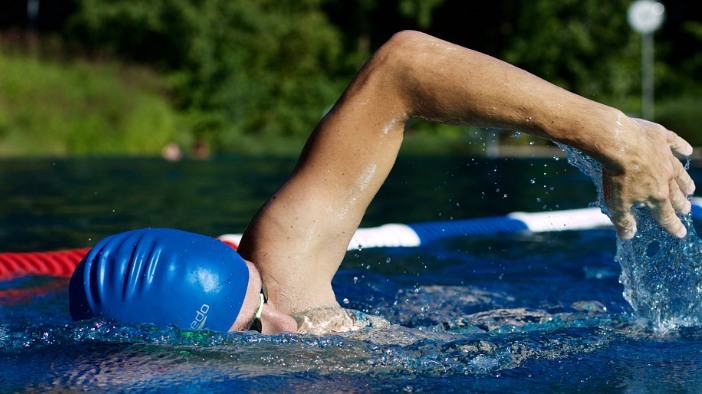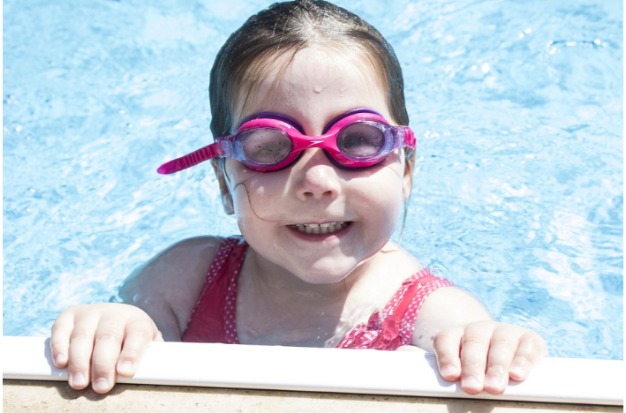Should I Swim While I’m Having a Cold?
Anyone who enjoys exercising can benefit from swimming as long as they are in good health. But those who work in the leisure sector frequently see adults and kids alike who are ill with colds frequenting the pools and are heavily medicated to mask their symptoms. With a cold, you typically experience a number of unpleasant symptoms. If you don’t want to lose out on priceless pool time, figuring out when to close the pool can be challenging. Here, we’ll tell you why it’s not a good idea to swim while sick.
Can I Go Swimming While Sick?
Yes, if you’re not debilitated, then you can swim with a cold. The question here is: Should you swim with a cold?
Generally speaking, you can do moderate exercise if your symptoms are above the neck. The majority of this is based on a study in which generally healthy individuals with a common cold—given to them for the purpose of the study—found that their symptoms didn’t worsen and, in some cases, were relieved by light exercise. They had no worse colds than those who did not exercise in terms of duration or severity.
Although it probably doesn’t feel good if you’re hacking and coughing, other research indicates that brief bursts of high-intensity exercise don’t affect the immune system.
In actuality, this means that swimming with a cold is probably okay if you’re just stuffy and possibly have a sore throat. However, you shouldn’t exercise if the symptoms are below the neck. This means that if you have a fever, severe fatigue, muscle aches, a chest infection, swollen glands, or any of the other conditions listed above, avoid the pool. If you experience any of those symptoms, the American Council on Exercise suggests waiting two weeks before starting an intense exercise program again. If the illness persists for a long time, you also shouldn’t exercise.
The Effect Of Swimming With A Cold
There are risks, which is why some medical professionals may advise against exercising while you’re ill, especially if the illness is below the neck. If you have a fever, this is especially true. It’s possible for your illness to worsen or for the cold to develop into an infection. Additionally, you might simply feel worse—more stuffed up or having trouble breathing. People are becoming more and more aware of a number of risks, including the possibility that exercising while sick can harm your heart. There is some evidence that when your body is battling a fever or the flu, you are at an increased risk for myocarditis, which is an inflammation of the heart muscle caused by a viral infection.
Even if your heart isn’t an issue, swimming with a cold may just be uncomfortable for you and the other swimmers—both of whom you may be swimming with. According to your symptoms. A cold can sometimes make some people feel worse after swimming. Some people say it makes them feel much better and clears their sinuses.
You put other swimmers at risk of catching your cold when you swim while sick. Viruses and bacteria are indeed killed by chlorine. (As the CDC points out, chlorine doesn’t completely eradicate all germs, but if a pool is properly chlorinated, it should eliminate the majority of germs linked to the common cold.) But the effects of chlorine take time to manifest. Please exit the pool if you need to cough or blow your nose in consideration for your lanemates.
Are you prepared to advance in your swimming career? In July, as part of our Try Masters Swimming campaign, try a free workout with a Masters club.
Simply complete our trial membership application, look for a local club that is a participant, and choose a time to swim with the club. Come discover the wonderful advantages for your physical, mental, and emotional health that tens of thousands of adults just like you are already reaping across the nation.

When It Is (and Isn’t) Ok To Swim With A Cold
Do the neck test: Generally, if the symptoms you’re experiencing are “above the neck,” it’s safe to exercise, according to the Mayo Clinic.
However, it is best to avoid swimming with a cold if any symptoms are below the neck, such as congestion in the chest or a fever.
Put off your workout if you have an upset stomach or body aches. Consider whether it’s worthwhile. You might be forced to if you’re a team swimmer. However, it’s acceptable to give yourself a day or two if you swim for fun or exercise.
4 Tips For Swimming With A Cold
1. Lower The Intensity
It’s safe to exercise when sick if your symptoms are above the neck, but you might want to modify or shorten your workout because your body is already working hard to fight the cold.
Reduce the length or intensity of your swim to lessen your risk of getting a more serious cold that could keep you out of the water for a longer period of time. Your overall training won’t be significantly impacted by a few days of easy swimming or no swimming at all.
2. Monitor Your Symptoms
Is a cold made worse by swimming? Sometimes the answer is yes and other times the answer is no.
According to the Cleveland Clinic, swimming pools treated with chlorine or bromine may cause symptoms resembling a cold, such as sneezing, runny nose, and coughing.
Consult an allergist, try taking an antihistamine, or wear a nose clip when swimming if you suspect you may be having an allergic reaction to these substances.
Swimming, on the other hand, might help with cold symptoms, in contrast to other forms of exercise. According to the Mayo Clinic, moist air (such as that found at swimming pools) aids in opening up your nasal passages, allowing the mucus to drain and aiding in breathing improvement.
You might feel a little better after a brief swim workout that helps to circulate blood to the muscles.
3. Keep Your Face Out Of The Water
Try breathing through your nose rather than your mouth if you are coughing while swimming while sick.
You must stick to swimming with your head held high in order to accomplish that. Try swimming the backstroke, treading water, or pool running.
4. Take Precautions
Stop the spread of your germs. It is your responsibility to take preventative measures when swimming while contagious.
Wash your hands frequently, especially after you sneeze, because chlorine doesn’t instantly kill germs, according to the Centers for Disease Control and Prevention. Avoid sharing water bottles or towels with other members of your swim team.
Conclusion
Swimming is a popular form of stress relief. You should challenge yourself and let go of everything that is outside the water. Many swimmers take every precaution to not miss a workout as a result of those emotions.
